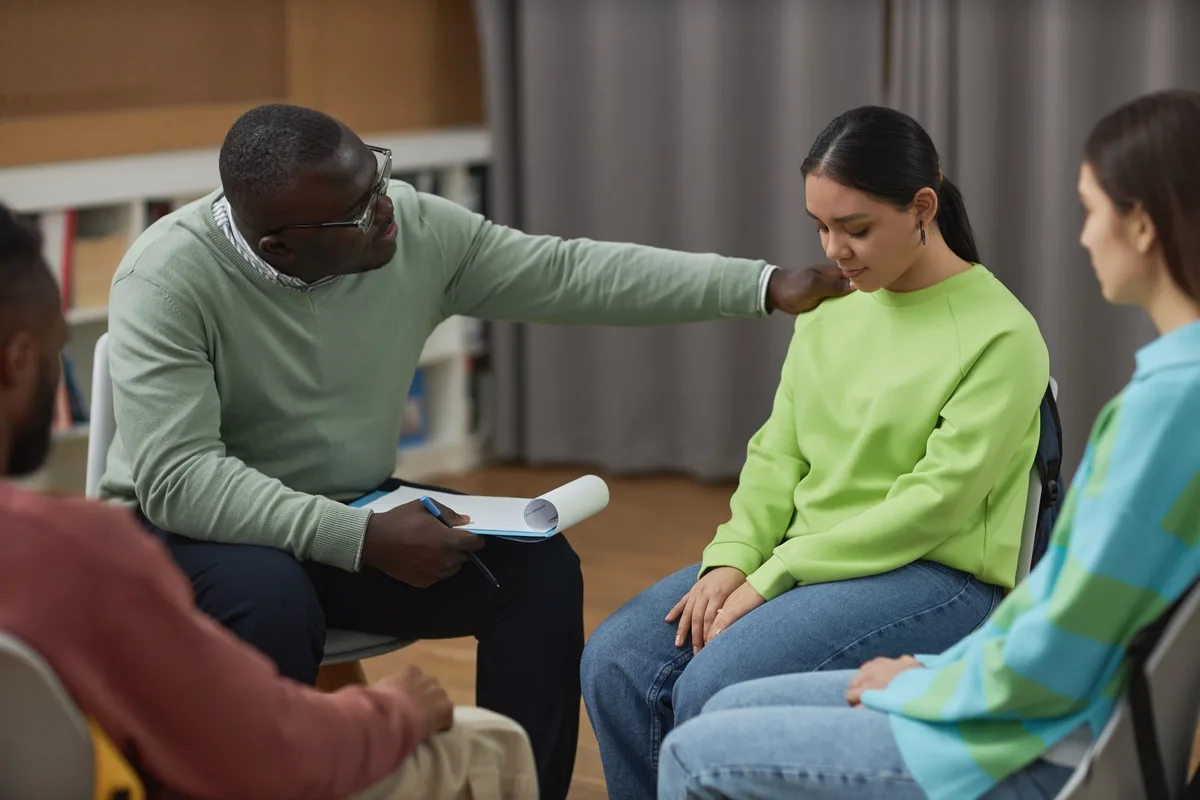24/7 Helpline:
(866) 899-221924/7 Helpline:
(866) 899-2219
Learn more about PTSD Rehab centers in Burnett County

Other Insurance Options

Anthem

Humana

United Health Care

Holman Group

WellPoint

Evernorth

Sutter

CareSource

Access to Recovery (ATR) Voucher

BlueCross

Health Partners

Horizon Healthcare Service

American Behavioral

Optum

PHCS Network

UnitedHealth Group

Excellus
Beacon

Private insurance

ComPsych




















Families First Counseling
Families First Counseling is a private rehab located in Siren, Wisconsin. Families First Counseling ...

Aurora Community Counseling – Siren
Aurora Community Counseling – Siren is a private rehab located in Siren, Wisconsin. Aurora Community...

Northwest Counseling – Siren
Northwest Counseling – Siren is a private rehab located in Siren, Wisconsin. Northwest Counseling – ...















